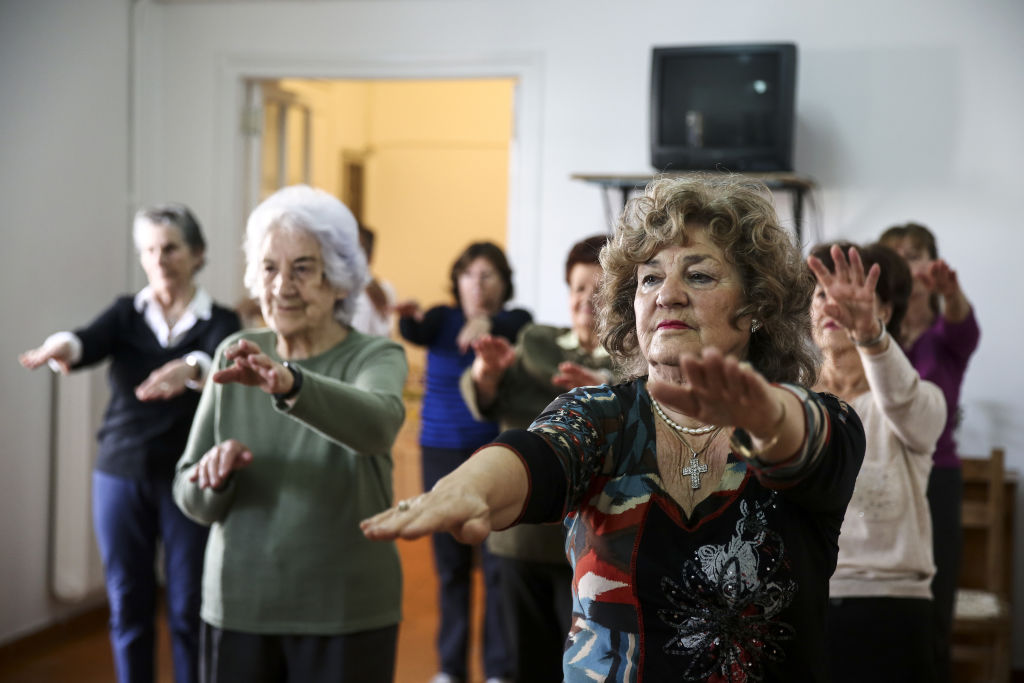Global life expectancy has increased significantly over the past century. Most recently, in pre-Covid June 2019, the United Nations released its World Population Prospects 2019 report.
Some of its findings were that “life expectancy at birth for the world, which increased from 64.2 years in 1990 to 72.6 years in 2019, is expected to increase further to 77.1 years in 2050” and “by 2050, one in six people in the world will be over age 65 (16%), up from one in 11 in 2019 (9%).”
Healthy ageing and a good quality of life are not guaranteed
However, even as greater numbers of humans get to experience older adulthood, healthy ageing and a good quality of life are not guaranteed as part of the package. While genes have a role to play in determining the health status of older adults, there are various choices and actions that can be made to improve the chances of “healthy ageing”, which the World Health Organization defines as “the process of developing and maintaining the functional ability that enables wellbeing in older age”.
While medical professionals know more today about healthy ageing than ever before, there is still much to be studied and updated. One field of study to which new knowledge is being added is vascular health.
“From a medical side of things, one of the most important things is looking after what we call vascular risk factors; basically blood vessel health. This includes improved ways of treating high blood pressure, diabetes, and lowering cholesterol. Essentially, there’s a lot of evidence that good blood vessel health plays a key role in helping you age better, even in terms of diseases that are not strictly related to blood vessels,” says Dr India Butler, a Johannesburg-based geriatrician and former vice-president of the South African Geriatrics Society (Sags).
As an example of conditions indirectly affected by blood vessel health, she cites dementias such as Alzheimer’s: “Even the risk of those types of diseases is lowered by improving vascular health. That’s been one of the biggest changes, which we think has caused people to age better and sort of live longer.”
While there are numerous lifestyle choices that individuals can make in the quest toward healthy ageing, “We’ve got to be practical about it. It’s not about perfection. Sometimes it’s about trying to be good enough,” says Butler. However, she is unequivocal about the contribution healthy lifestyle habits, especially in middle age, can make towards better health in older adulthood.
The most important choice you can make toward healthy ageing
Unsurprisingly, physical exercise tops the list when it comes to maintaining or even improving health. Says Butler: “It’s actually considered the most powerful anti-ageing drug. Physical exercise is much more useful – even in dementia prevention – than mental exercises, for example.”
/file/dailymaverick/wp-content/uploads/2022/05/GettyImages-509650802.jpeg)
She advises her patients to incorporate the generally accepted amount of 150 minutes of exercise per week, explaining that this need not strictly take the form of formal exercise classes. It could range from regular half-hour walks to bicycle rides with one’s kids, through to incorporating the formal, such as yoga, biokinetics or pilates classes. And as recently reported in Maverick Life, gardening is also a good form of exercise.
To further highlight the significant contribution even relatively simple movement makes to health and mortality, a study conducted at different intervals over a decade by US researchers at the National Institute on Aging, as well as the Centers for Disease Control and Prevention, focused on mortality in relation to the daily number of steps individuals take. The researchers found that comparatively, adults 40 years and older who took 8,000 steps or more a day, were associated with a 51% lower risk of death from all causes than those who took 4,000 steps or less.
About diet
“The best-studied diet is the so-called Mediterranean Diet, which includes lots of fresh fruit and vegetables, whole grains, a little bit of red meat, a little bit of dairy, and minimal processed food. It’s also about focusing on food that you’ve made yourself rather than foods made in a factory,” says Butler, adding that there are also adaptations to the Mediterranean-style diet, such as the Mind diet, which is designed to help towards the prevention of dementia and loss of brain function in the ageing process.
It combines the Mediterranean Diet with the Dash (dietary approaches to stop hypertension) diet. As explained by the US’s National Heart, Lung and Blood Institute, the Dash diet recommends “eating vegetables, fruits, and whole grains; including fat-free or low-fat dairy products, fish, poultry, beans, nuts, and vegetable oil; limiting foods that are high in saturated fat, such as fatty meats, full-fat dairy products, and tropical oils such as coconut, palm kernel, and palm oils,” as well as “limiting sugar-sweetened beverages and sweets”. That said, there is an increasing amount of research in the field of fatty acids that questions whether fat-free and low-fat products are better than full-fat products, especially as some low-fat and fat-free options can be higher in refined starches and added sugars.
Butler points to a recent study on dietary fat, published in April 2022, which advises that rather than restricting total fat intake, an “increase consumption of minimally processed, bioactive-rich foods like fruits, nuts, seeds, vegetables, legumes, whole-grain products, plant oils, yogurt, and seafood, which are linked to lower risk of cardiovascular diseases, diabetes, and obesity. Reduce consumption of processed meats and carbohydrate rich foods high in refined starch, added sugars, trans fat, or sodium. Cheese, milk, eggs, poultry, and unprocessed red meats may be added in moderation.”
Mind stands for the Mediterranean-Dash Intervention for Neurodegenerative Delay, and while the eating plan is a hybrid of the two diets, notable deviations are that it “emphasises natural plant-based foods and limited intakes of animal and high saturated fat foods but uniquely specifies consumption of berries and green leafy vegetables, and does not specify high fruit consumption, high dairy, high potato consumption or greater than one fish meal per week,” according to a 2015 study on the link between the diet and a reduction in incidences of Alzheimer’s disease. The popular health website Healthline also offers a detailed breakdown of the food those following the diet should consume.
Social connections and a sense of purpose
On 14 December 2020, the United Nations launched its Decade of Healthy Ageing (2021-2030) initiative, a platform for global collaboration to bring together “governments, civil society, international agencies, professionals, academia, the media, and the private sector to improve the lives of older people, their families, and the communities in which they live”.
According to a paper published by the platform, titled Social Isolation and Loneliness Among Older People, “Social isolation and loneliness have serious consequences for longevity, health and well-being. In older age, social isolation and loneliness increase the risks of cardiovascular disease, stroke, diabetes, cognitive decline, dementia, depression, anxiety and suicide.”
The paper, which draws on a growing body of research, also notes the impact of life transitions and disruptive life events, such as “retirement; loss of a spouse, partner or friends; migration of children or migration to join children; and disability or loss of mobility”, which are more likely to affect older adults, putting them at increased risk.
/file/dailymaverick/wp-content/uploads/2022/05/GettyImages-509650822.jpeg)
Butler notes that while individual choice plays an important role in maintaining these connections, it is also important for society at large to take them into consideration from a cultural perspective.
“We need other humans to connect and engage with. We’ve seen the benefits of this in societies that look after their older adults well. This is interesting for our country, which has different cultures that revere and look after old people. There’s a lot of cultural aspects that are already in place that we see as geriatricians, which help older people maintain those connections,” says Butler.
Alongside these social connections, she emphasises the importance of a sense of purpose: “Having a purpose, a sense of meaning, a reason to get out of bed, these things are quite important for health and longevity. These can be small things, from seeing a friend to participating in what we call ‘meaningful, tailored, joyful activities’. That is to say, activities that are meaningful to you as a person.”
Alzheimer’s red flags: Booze, smoking, hearing loss and air pollution
In 2020, the Lancet Commission published the Dementia prevention, intervention, and care 2020 report. Among the risk factors for dementia that are mentioned in the report, hearing loss in midlife is rated highly, alongside excessive alcohol consumption, obesity and hypertension; and in later life, depression, air pollution and smoking are also highlighted as risk factors for dementia.
“Although the report is specifically for dementia prevention, it applies to other diseases of ageing, because we classify them similarly,” says Butler, noting, in particular, that “even mild hearing loss must be attended to; it’s very beneficial. It’s also very important to not smoke, as that is another heavily weighted risk factor for diseases of ageing. Just stopping smoking actually reduces your dementia risk. We’ve also identified that there are higher rates of dementias such as Alzheimer’s in areas that have a lot of air pollution.”
Stick to your GP
While there are a number of health screenings that are widely accepted as standard at specific ages, Butler recommends a regular visit to your GP as well as, where possible, sticking to one GP or healthcare provider for a long period.
“At a basic level, go for a check-up at least twice a year to your local clinic or GP to have a blood pressure check, a cholesterol check, and a glucose check. In my experience, I’ve found that people who have a GP, or a regular healthcare provider, instead of multiple specialists, usually fare better in terms of maintaining their health,” says Butler.
She notes that this also helps alert patients as to when they should go for the more investigative health screenings such as mammograms, prostate tests, colonoscopies or bone density checks.
Sleep well
The importance of sleep is well documented in its effects on health, including causing inflammation, as previously reported by Maverick Life. However, Butler cautions against sleep medication such as sleeping tablets.
“It’s about sleeping well, and using non-pharmacological ways of inducing sleep, as sleeping pills tend to be cognitively negative. In fact, some sedatives increase the risk of dementia. It’s often harder than merely taking a pill, but as in many cases, the harder path is better for your health.
“So it’s about practising good sleep habits, not looking at our screens while in bed and finding ways of reducing stress.” DM/ML





 Greek pensioners perform a workout during an exercise class inside a ‘Friendship Club’ for the elderly of the Athens municipality in Athens, Greece, on Friday, April 7, 2017. Photographer: Yorgos Karahalis/Bloomberg via Getty Images
Greek pensioners perform a workout during an exercise class inside a ‘Friendship Club’ for the elderly of the Athens municipality in Athens, Greece, on Friday, April 7, 2017. Photographer: Yorgos Karahalis/Bloomberg via Getty Images